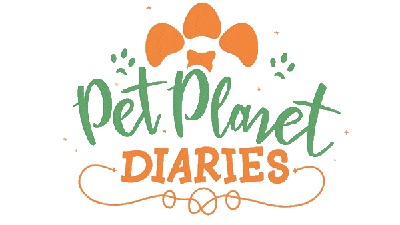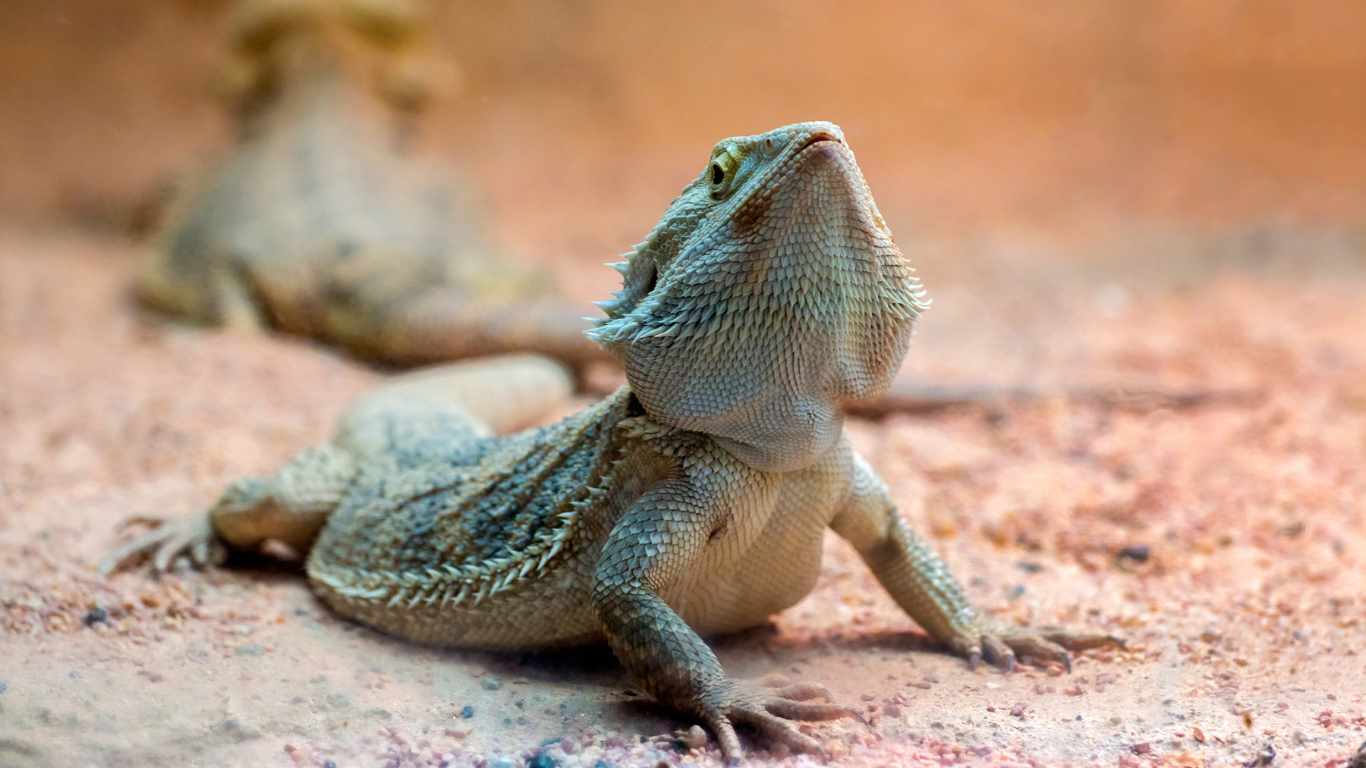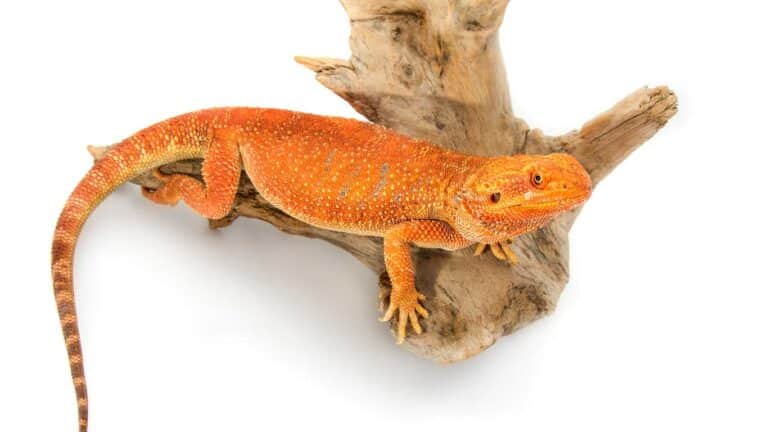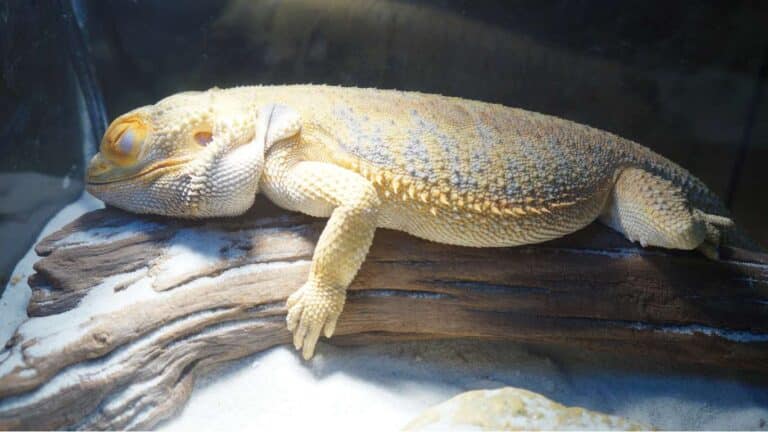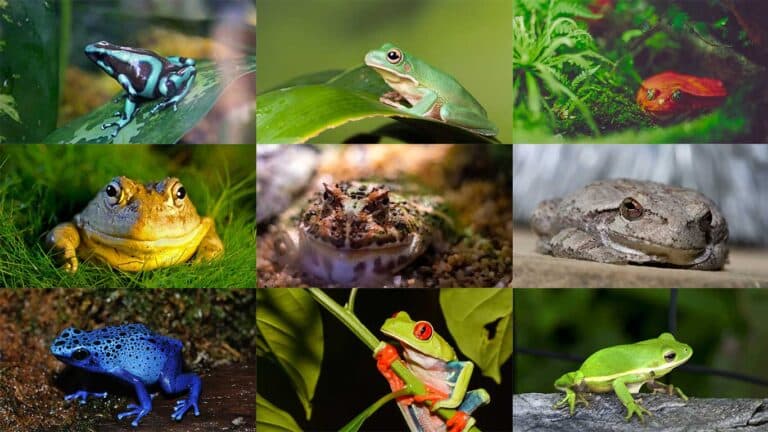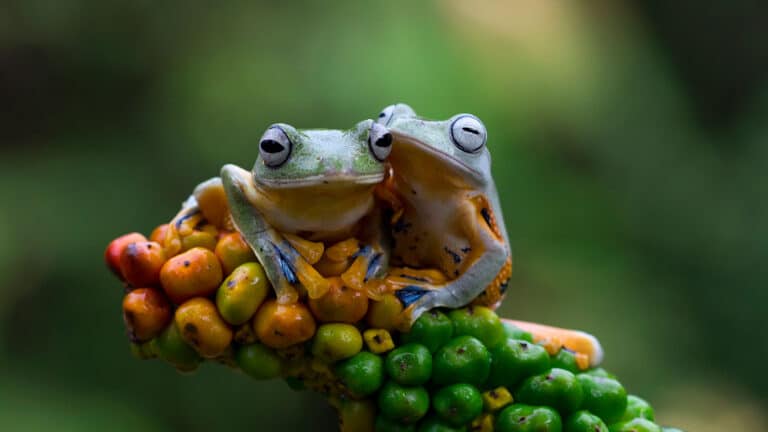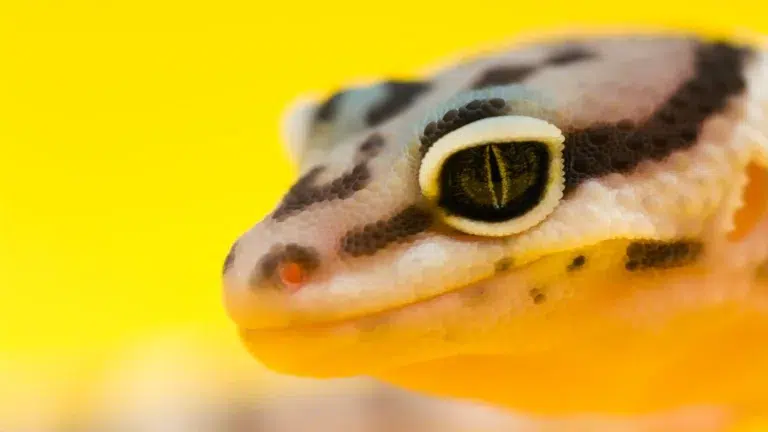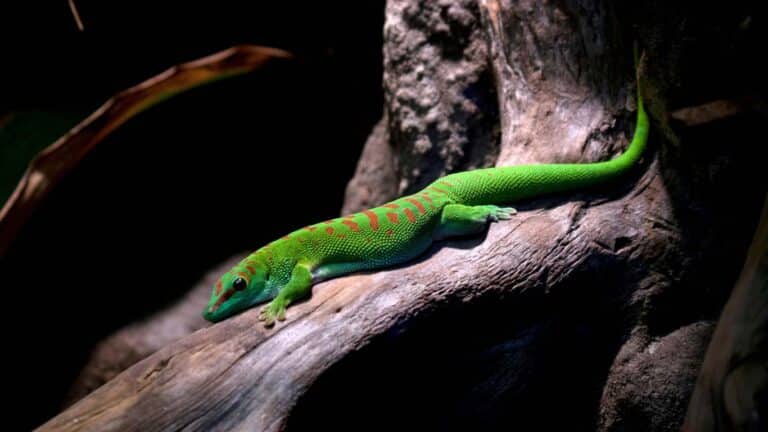Welcome to our in-depth exploration of the health and nutrition needs of bearded dragons. If you’re a proud owner of these fascinating reptiles, you might find yourself wondering, ‘How Long Can a Bearded Dragon Go Without Eating?’ In this article, we’ll provide you with valuable insights into this topic and equip you with the knowledge to ensure the well-being of your bearded dragon.
Scales Of Wisdom: Key Insights:
Understanding Bearded Dragons’ Dietary Needs
Bearded dragons are fascinating reptiles with unique dietary needs. As omnivorous creatures, they require a diverse diet that includes both plant matter and animal protein to thrive. Mimicking their natural diet is crucial when caring for them in captivity, as it ensures they receive essential nutrients, vitamins, and minerals.
In the wild, bearded dragons have a varied diet consisting of insects such as crickets, mealworms, and roaches, as well as leafy greens and occasional fruits. This combination of animal and plant-based foods provides them with a balanced nutritional profile.
To maintain the health and well-being of your bearded dragon, it’s important to provide them with a similar diet in captivity. This means offering a selection of appropriate insects and a variety of leafy greens, as well as occasional fruits as treats. Opt for high-quality, gut-loaded insects that have been fed a nutritious diet themselves, ensuring your pet receives optimal nutrition.
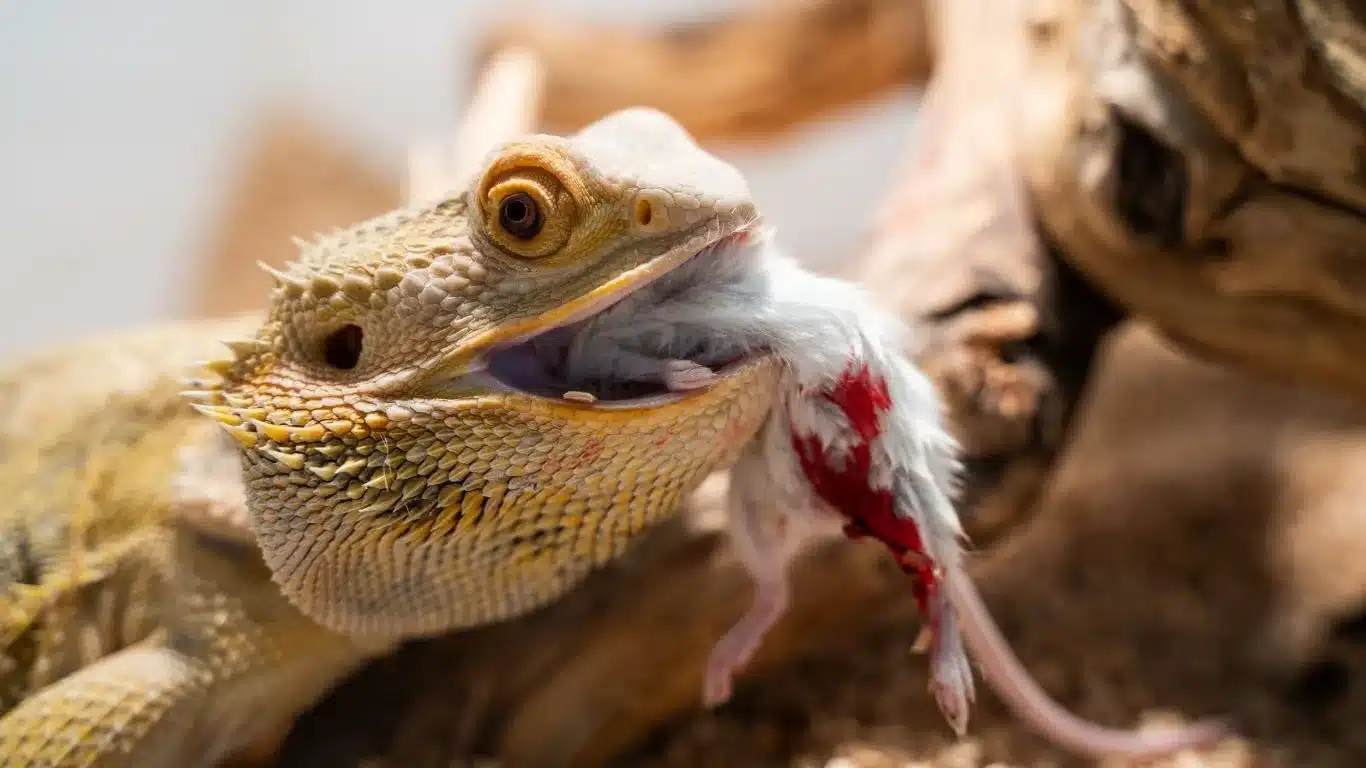
When it comes to plant matter, choose a diverse range of dark, leafy greens such as kale, collard greens, and mustard greens. These greens are packed with vitamins and minerals necessary for a bearded dragon’s overall health.
Did You Know? Bearded dragons have a keen sense of smell and often rely on it to detect and locate their prey. Providing a wide variety of food options can stimulate their appetite and encourage a healthy eating habit.
It’s important to note that not all insects and plants are suitable for bearded dragons. Some insects may be toxic, while certain vegetables and fruits can be harmful if consumed in excess. It is essential to research and consult a reptile veterinarian or an experienced reptile specialist to ensure you are offering safe and nutritious options to your pet. Additionally, it’s crucial to know ‘How Long Can a Bearded Dragon Go Without Eating’ to prevent any health issues related to over or underfeeding.
Furthermore to the food itself, proper supplementation is also essential to meet their dietary needs. Bearded dragons benefit from calcium and vitamin D3 supplements to support bone health and prevent metabolic bone disease. These supplements can be dusted on their food a few times a week or as recommended by a reptile veterinarian. Understanding ‘How Long Can a Bearded Dragon Go Without Eating’ helps in scheduling these supplements effectively.
Remember to provide fresh, clean water for your bearded dragon at all times, as hydration is key to their overall well-being. A shallow water dish should be included in their enclosure, allowing your pet to drink and bathe as they would in their natural habitat.
Understanding and meeting the dietary needs of your bearded dragon is vital for their growth, development, and overall health. By providing a well-rounded diet that mimics their natural feeding habits, you can ensure they lead a happy and healthy life in captivity.
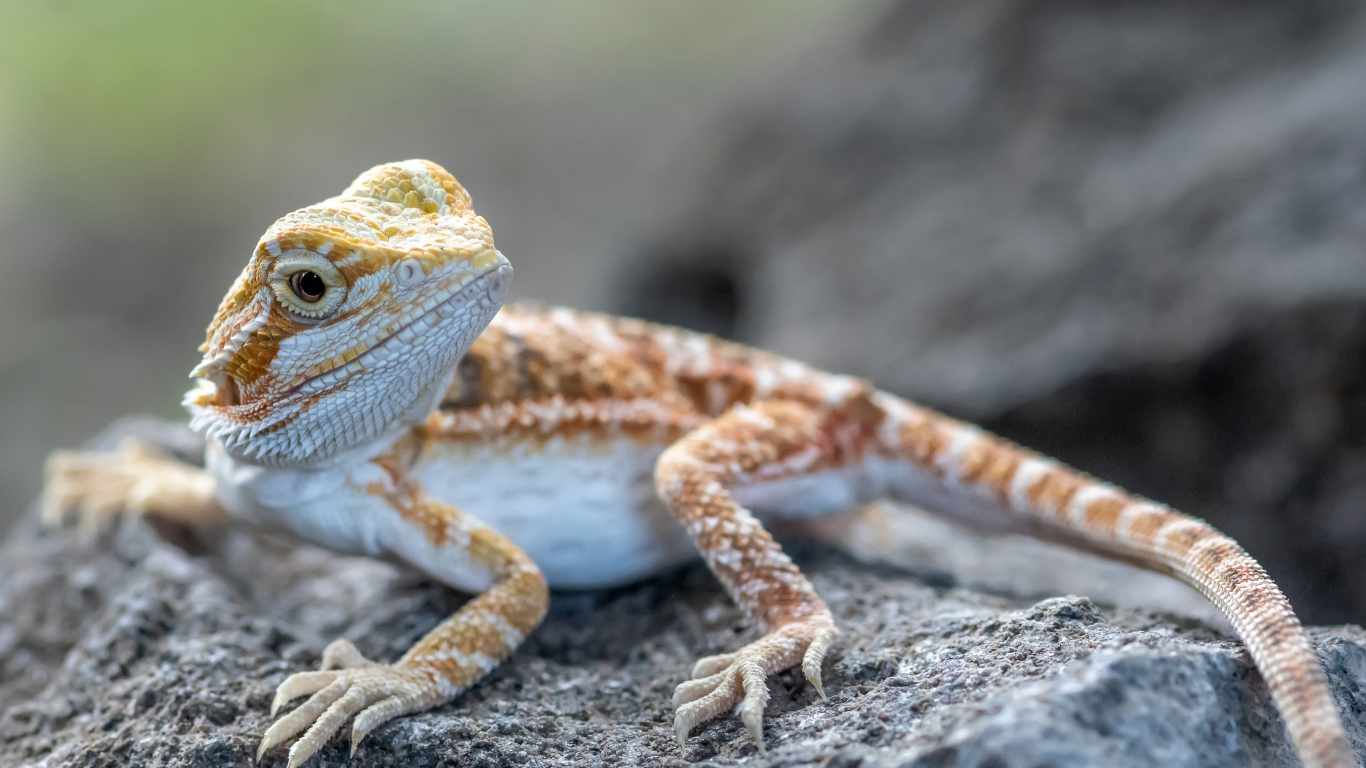
Factors Affecting Bearded Dragons’ Food Intake
Several factors can influence the food intake of bearded dragons, including temperature, age, and environmental stress. Let’s explore each of these factors in detail:
Temperature
The temperature of their environment plays a crucial role in a bearded dragon’s ability to eat. These reptiles require specific temperatures to maintain their metabolism and facilitate optimal digestion. If the temperature is too low, they may become sluggish and less likely to eat. On the other hand, if the temperature is too high, it can lead to discomfort and decreased appetite.
Age
The age of a bearded dragon is another important factor that affects their food intake. Younger dragons have higher metabolic rates and therefore require more frequent feedings compared to adults. As they grow older, their metabolism slows down, and they can be fed less often. It is essential to adjust their feeding schedule according to their age to ensure they receive adequate nutrition for healthy growth and development.
Environmental Stress
“Environmental stressors such as changes in habitat or handling can have a significant impact on a bearded dragon’s appetite.”
Bearded dragons are sensitive creatures, and any changes in their environment can cause stress, leading to a decrease in food intake. Moving them to a new enclosure, introducing new tank mates, or excessive handling can all be potential stressors. It is important to provide a calm and stable environment for your bearded dragon to ensure they feel secure and comfortable while eating.
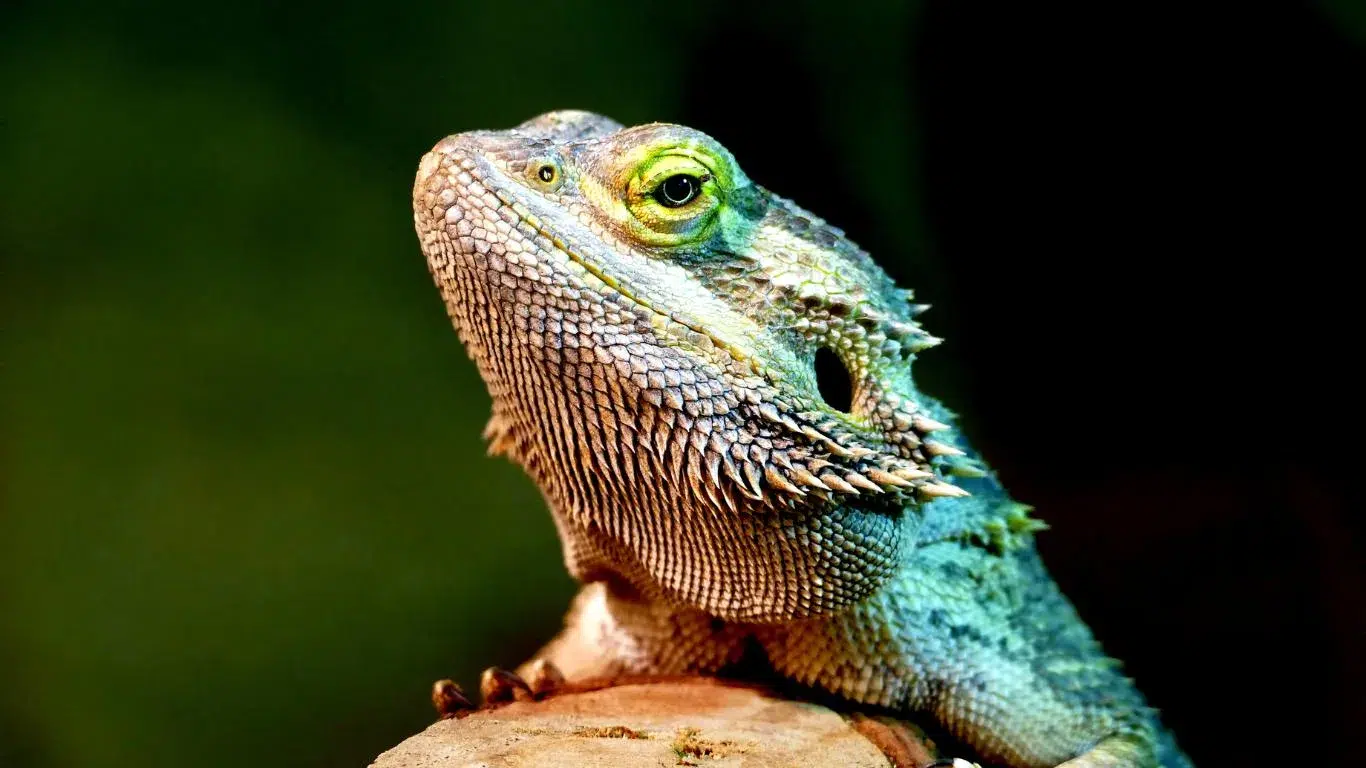
Understanding these factors and how they influence a bearded dragon’s food intake is essential for their overall health and well-being. By creating an optimal environment with the right temperature, adjusting the feeding schedule based on their age, and minimizing environmental stressors, you can help ensure that your bearded dragon maintains a healthy appetite and receives the nutrition they need to thrive.
| Factors | Effects on Food Intake |
|---|---|
| Temperature | Appetite decreases in both extreme low and high temperatures |
| Age | Youth requires more frequent feeding compared to adults |
| Environmental Stress | Changes in habitat or handling can lead to a decrease in appetite |
How Long Can Bearded Dragons Go Without Food?
Bearded dragons can go without food for about one to two weeks without facing immediate health risks. However, it is not recommended to let them go that long without eating. They require a balanced diet consisting of both animal protein and fresh vegetables and fruits to meet their nutritional needs.
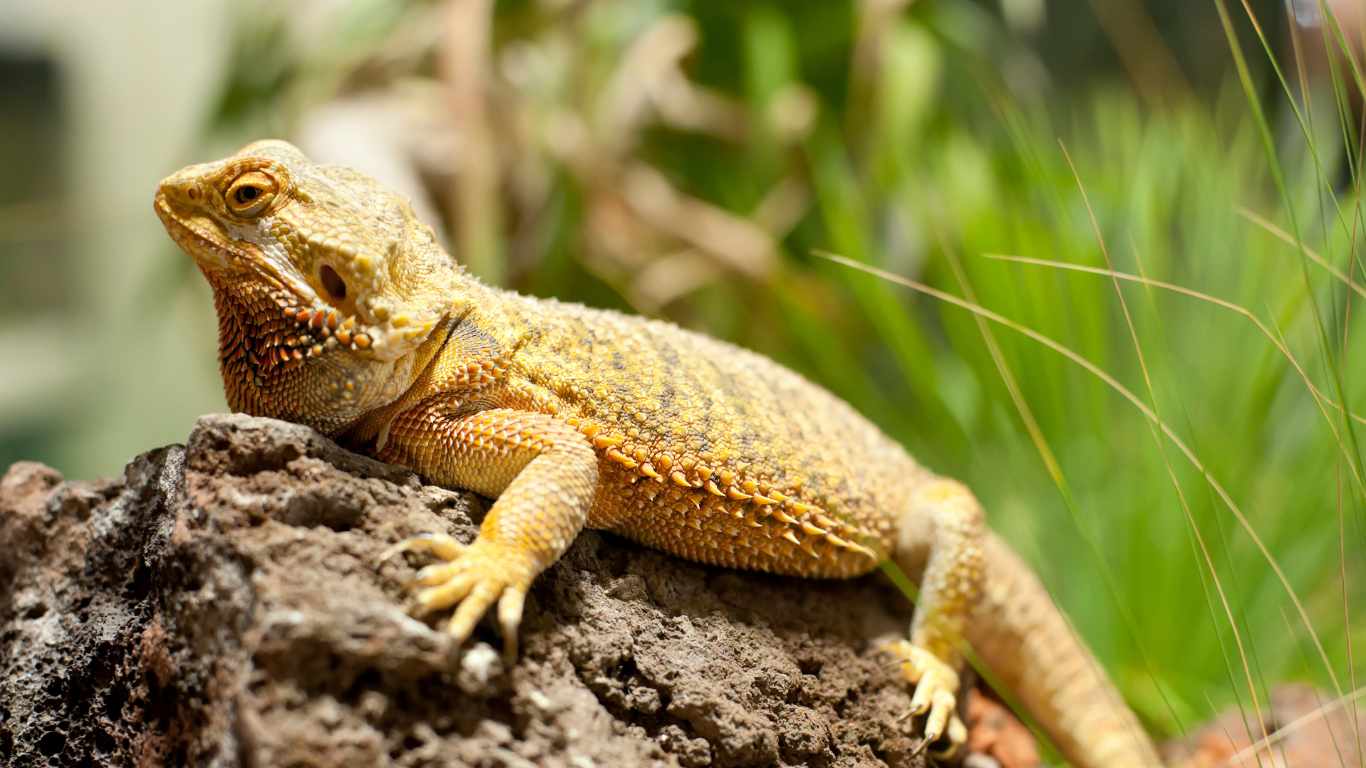
Bearded dragons are resilient reptiles with unique biological adaptations that allow them to survive temporary food scarcity. These adaptations include the ability to store fat reserves and adjust their metabolic rate. However, prolonged periods without food can lead to health complications such as malnutrition or dehydration.
To maintain the health and well-being of your bearded dragon, it is essential to provide a varied and nutritious diet. A balanced diet for bearded dragons includes:
- High-quality, gut-loaded insects such as crickets, mealworms, and roaches
- Leafy greens like kale, collard greens, and dandelion greens
- Colorful vegetables and fruits like bell peppers, carrots, and berries
By offering a diverse range of food options, you can ensure that your bearded dragon receives all the essential nutrients, vitamins, and minerals they need to thrive.
Signs of Hunger or Malnutrition in Bearded Dragons
A bearded dragon’s well-being relies on receiving proper nutrition to maintain optimal health. As a responsible pet owner, it is essential to be aware of the signs that indicate your bearded dragon may be experiencing hunger or malnutrition. By recognizing these signs early on, you can take appropriate action to ensure your dragon’s nutritional needs are met.
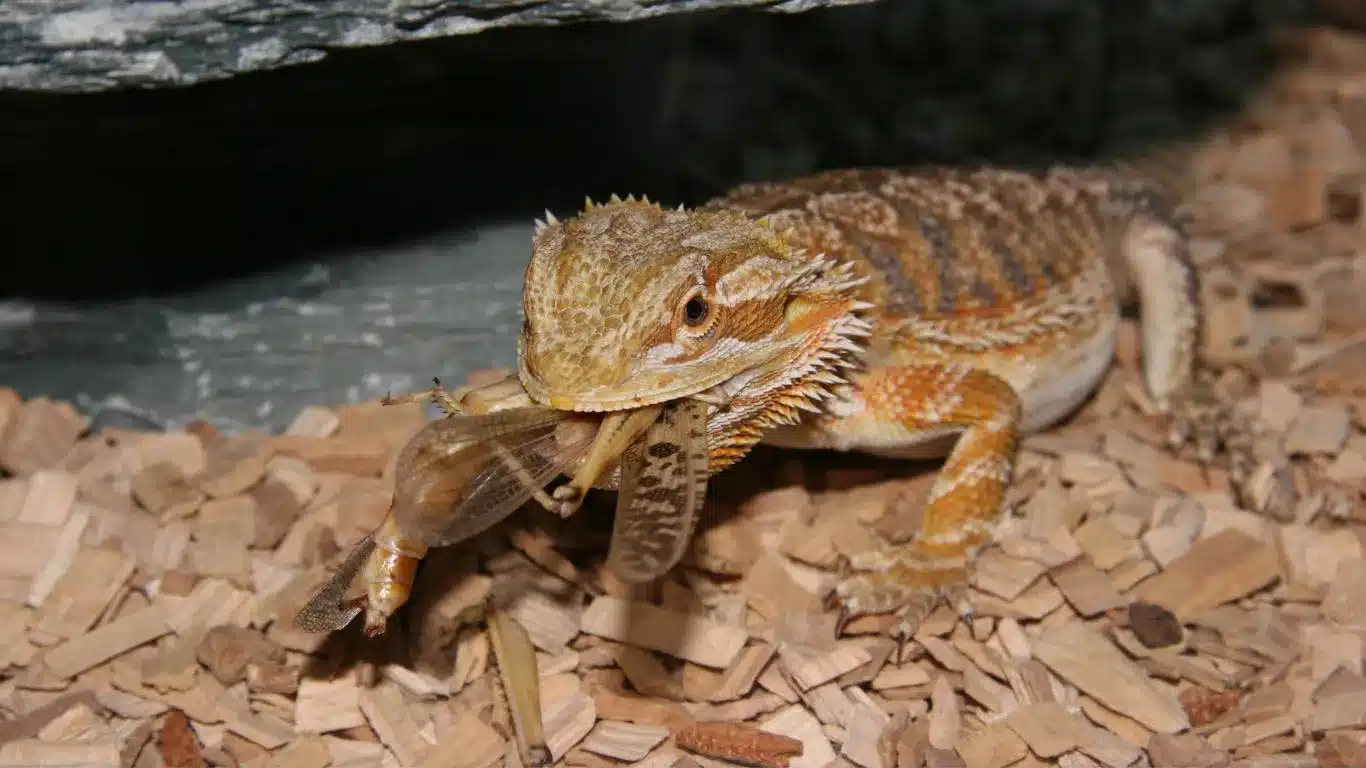
Potential Signs of Hunger or Malnutrition
- Decreased appetite: Pay attention if your bearded dragon is eating significantly less than usual. A consistent decrease in their food intake over time may indicate hunger or an underlying health issue.
- Weight loss: Be vigilant about monitoring your dragon’s weight. If you notice a steady decline in their weight, it could be a sign of inadequate nutrition or an underlying health problem.
- Visibly thinner body condition: Observe your bearded dragon’s physical appearance. If their body appears visibly thinner or if you can easily see their ribs or spine, it may indicate malnutrition.
If you notice any of these signs, take immediate action to address your bearded dragon’s nutritional needs. Seek veterinary assistance to ensure a proper diagnosis and develop an appropriate feeding plan. A veterinarian will assess your dragon’s overall health and provide guidance on adjusting their diet or incorporating nutritional supplements if necessary.
Remember, providing a balanced diet and regular monitoring of your bearded dragon’s eating habits are essential for their well-being. By being proactive and attentive, you can help prevent hunger and malnutrition in your beloved pet.
“A bearded dragon’s nutrition plays a crucial role in their overall health and vitality.”
Table: Common Signs of Hunger or Malnutrition in Bearded Dragons
| Sign | Description |
|---|---|
| Decreased appetite | A significant decrease in food intake compared to normal eating habits. |
| Weight loss | A steady decline in body weight over time. |
| Visibly thinner body condition | A noticeable decrease in body mass, visible ribs, or a more prominent spine. |
Ensuring your bearded dragon’s nutritional needs are met is crucial for their overall health and well-being. By recognizing the signs of hunger or malnutrition, you can take proactive steps to address any concerns and provide the necessary care to keep your dragon happy and healthy.
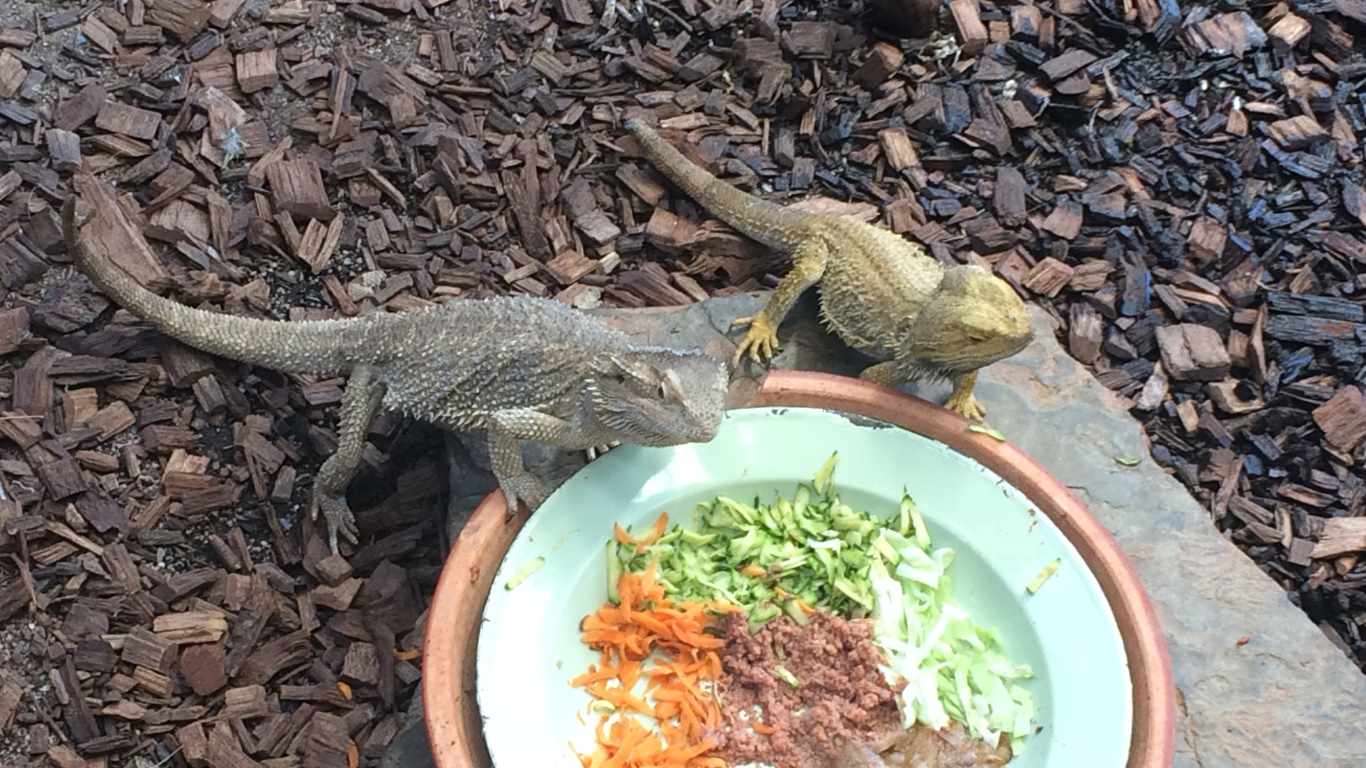
The Importance of Regular Feeding Schedule for Bearded Dragons
Maintaining a regular feeding schedule is crucial for the health and well-being of bearded dragons. As with any pet, providing them with consistent and timely meals ensures they receive the necessary nutrients and energy to thrive. Knowing how long can a bearded dragon go without eating is essential to prevent any health issues.
For younger bearded dragons, it is important to feed them more frequently due to their higher metabolic rates. This means offering them food on a daily basis. However, it’s also important to understand how long can a bearded dragon go without eating, especially as they grow older and their metabolism slows down. In such cases, feeding them every two to three days will be sufficient.
When it comes to their diet, bearded dragons require a balance of animal protein and fresh vegetables and fruits. This allows them to get the essential nutrients and vitamins needed for their growth and overall health.
To provide a well-rounded diet, consider offering a variety of food options. Bearded dragons enjoy various insects like crickets, mealworms, and roaches as a source of animal protein. Additionally, leafy greens such as kale, collard greens, and dandelion greens should be included to meet their plant matter requirements.
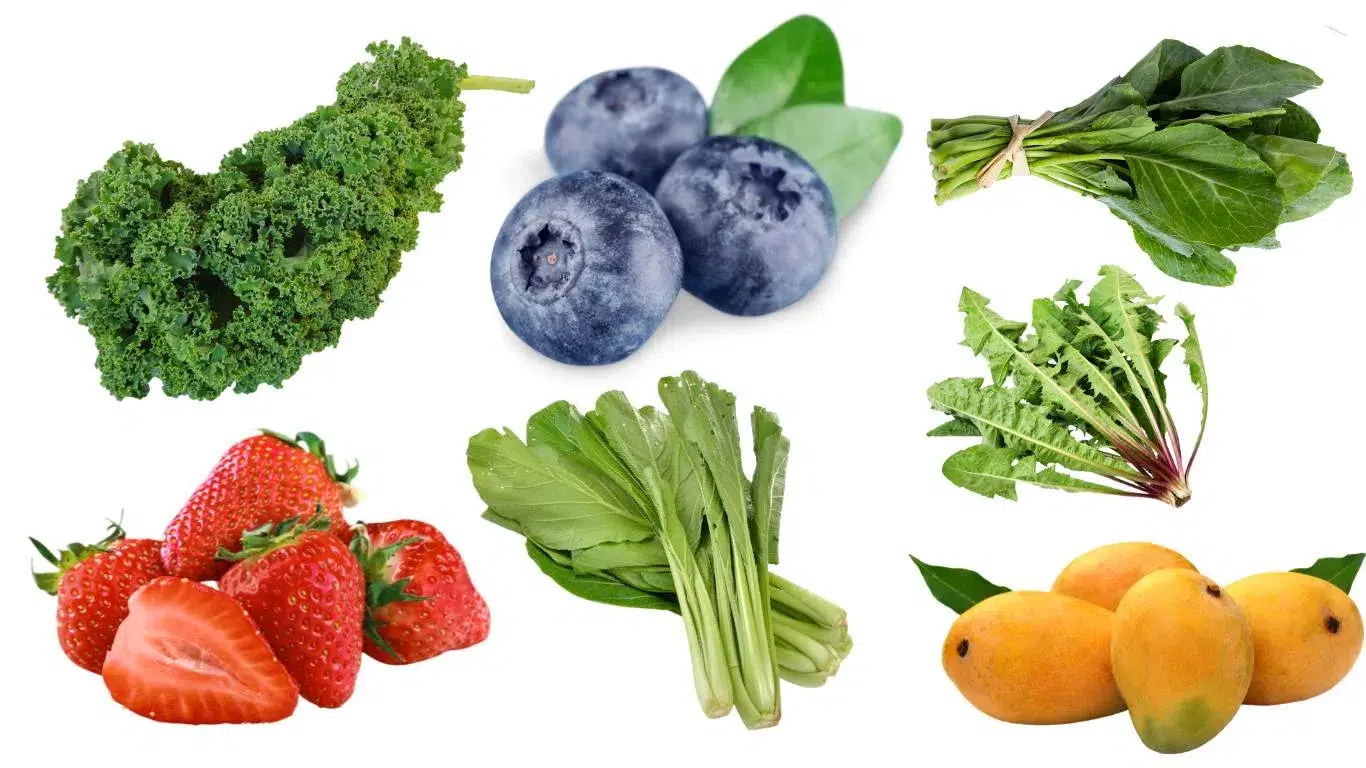
| Animal Protein | Vegetables | Fruits |
|---|---|---|
| Crickets | Kale | Blueberries |
| Mealworms | Collard greens | Strawberries |
| Roaches | Dandelion greens | Mango |
| Mustard greens |
Remember to always provide fresh food and remove any uneaten leftovers to maintain a clean and hygienic environment. In addition, ensure that the food is appropriately sized for your bearded dragon’s age and size to prevent choking hazards.
A regular feeding schedule not only ensures a healthy diet for your bearded dragon but also helps establish a routine for them, reducing stress and promoting overall well-being. So, make it a priority to feed your bearded dragon at the same time each day or every two to three days, depending on their age.
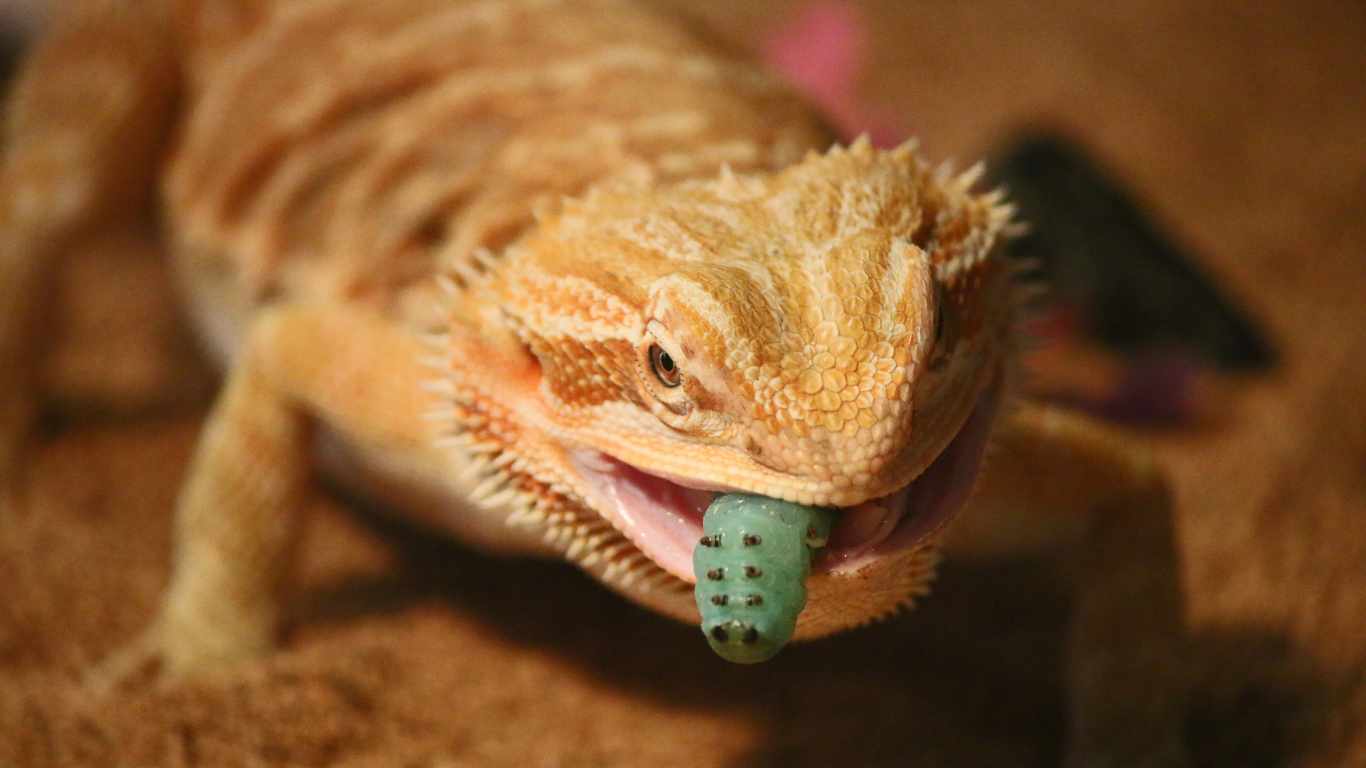
Tips for Encouraging Bearded Dragons to Eat
If your bearded dragon is showing a decreased appetite or reluctance to eat, there are several tips you can try to encourage them to enjoy their meals:
- Offer a Variety of Food Options: Bearded dragons can be picky eaters, so providing a diverse menu can help stimulate their appetite. Experiment with different types of live insects, such as crickets, mealworms, and roaches, as well as a variety of leafy greens and vegetables.
- Ensure Proper Temperature and Lighting: Bearded dragons require specific temperature and lighting conditions to maintain their health and appetite. Make sure their enclosure has a proper temperature gradient, with a basking spot ranging between 95-105°F (35-40°C) and cooler areas around 80°F (27°C). Additionally, provide adequate UVB lighting to support their calcium metabolism and overall well-being.
- Create a Stimulating Environment: Bearded dragons thrive in an enriched environment that mimics their natural habitat. Use rocks, branches, and other decor items to create a stimulating and engaging enclosure. This can help encourage natural behaviors and stimulate their appetite.
- Monitor Behavior Closely: Pay attention to your bearded dragon’s behavior and feeding habits. If they consistently refuse food or show signs of distress, it’s essential to consult a veterinarian for a thorough evaluation to rule out any underlying health issues.
Remember, each bearded dragon is unique, and it may take some time to find the right combination of food and environmental factors to encourage their appetite. Patience and persistence are key in helping your bearded dragon maintain a healthy and balanced diet.
Expert Tip:
“Bearded dragons may become particularly enticed by moving prey. Try gently wiggling the live insect in front of them to simulate natural hunting behavior and trigger their predatory instincts.”
– Dr. Amelia Richards, Reptile Veterinarian
Common Mistakes to Avoid in Bearded Dragon Feeding
Feeding your bearded dragon may seem simple, but there are some common mistakes that many owners make. To ensure the health and well-being of your reptile companion, it’s important to avoid these pitfalls in their feeding routine.
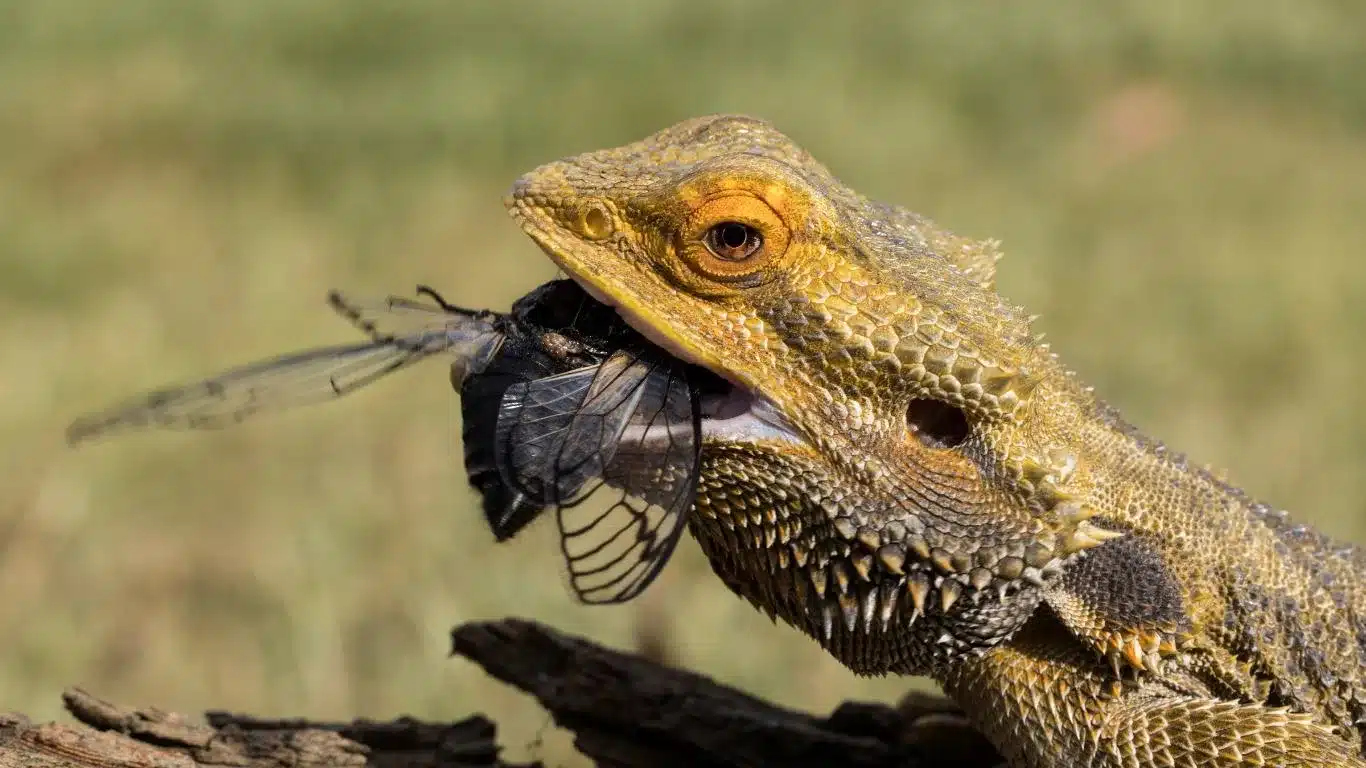
Overfeeding
One of the most common mistakes in bearded dragon feeding is overfeeding. While it’s essential to provide your dragon with proper nutrition, overfeeding can lead to obesity and related health problems. It’s important to remember that bearded dragons have a slower metabolism than mammals, and they don’t require daily feedings like other pets.
Feeding Inappropriate Food Items
Another mistake is feeding your bearded dragon inappropriate food items. While they are omnivores and can eat a variety of foods, certain items can be harmful or toxic to them. Avoid feeding your dragon foods that are high in fat, sugar, or salt. Additionally, certain insects like fireflies and spiders can be toxic to reptiles, so it’s important to research and provide safe food options.
Neglecting to Provide Proper Temperature and Lighting
Temperature and lighting are crucial for the overall health and well-being of your bearded dragon. Incorrect temperature can impact their digestion and metabolism, leading to issues with appetite and nutrient absorption. Similarly, inadequate lighting can hinder their vitamin D synthesis and overall energy levels. It’s important to provide a suitable temperature gradient and the correct UVB lighting to create a comfortable and stimulating environment for your dragon.

The table below summarizes the common mistakes to avoid in bearded dragon feeding:
| Mistake | Impact |
|---|---|
| Overfeeding | Obesity, health problems |
| Feeding inappropriate food items | Potential toxicity, nutritional imbalances |
| Neglecting to provide proper temperature and lighting | Digestive issues, vitamin deficiencies |
By avoiding these common mistakes and providing a balanced diet along with suitable temperature and lighting, you can ensure the optimal health and well-being of your bearded dragon.
Seeking Veterinary Assistance for Bearded Dragons’ Appetite Issues
If your bearded dragon is experiencing appetite issues or showing signs of malnutrition, it is crucial to seek veterinary assistance. A qualified veterinarian can provide the necessary expertise to address your dragon’s specific needs and help improve its appetite.
An experienced veterinarian will begin by conducting a thorough examination of your bearded dragon, taking into account its age, overall health, and dietary history. This examination may involve assessing its body condition, noting any physical abnormalities, and checking for signs of dehydration or malnutrition. One important aspect to consider is “How Long Can a Bearded Dragon Go Without Eating,” as this can indicate underlying health issues.
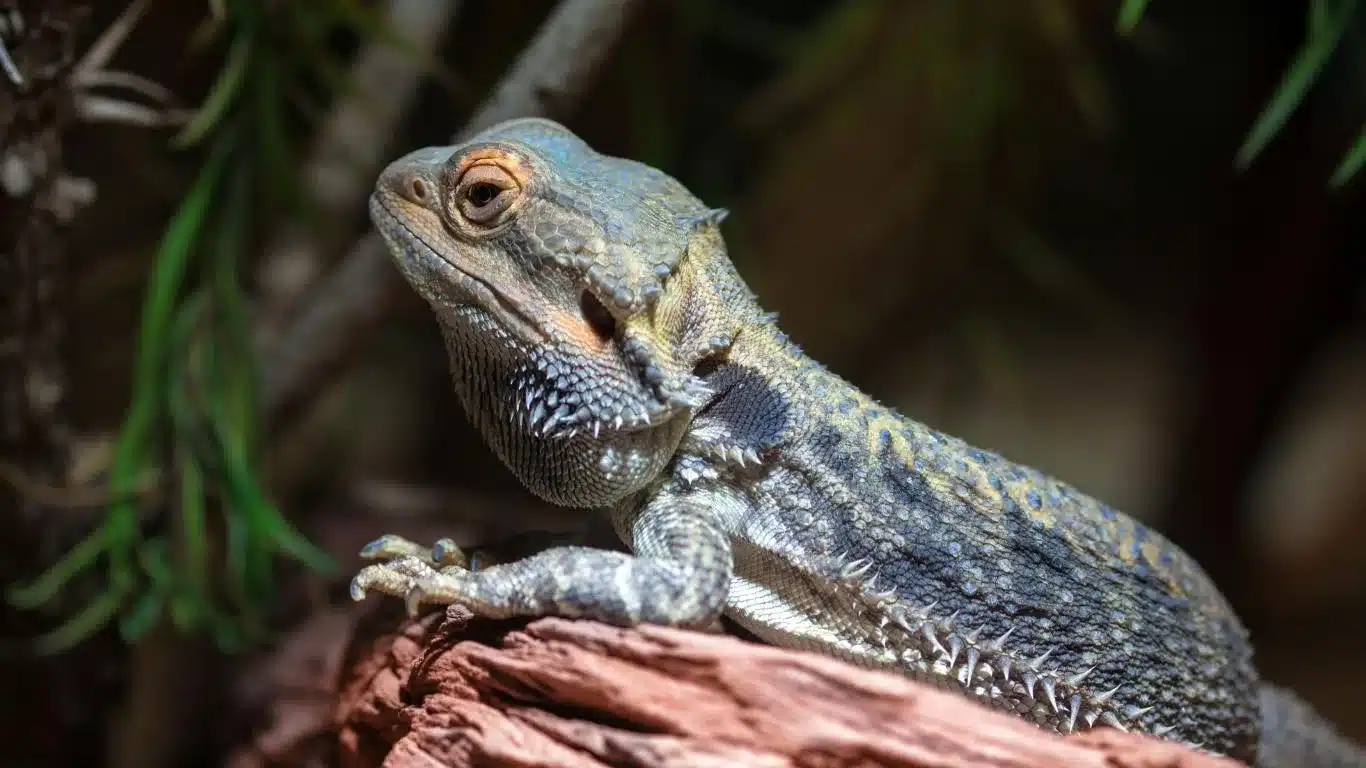
Based on the examination findings, the veterinarian will then provide tailored dietary recommendations for your bearded dragon. These recommendations may include adjusting the types of food offered, altering feeding schedules, or supplementing the diet with specific nutrients or vitamins. Understanding “How Long Can a Bearded Dragon Go Without Eating” is crucial in assessing the urgency and type of dietary intervention needed.
In some cases, appetite issues in bearded dragons could be a symptom of an underlying health condition. A veterinarian will be able to identify and address these issues. They may conduct additional tests, such as blood work or fecal analysis, to rule out any illnesses or infections that could be affecting your dragon’s appetite.
Remember, each bearded dragon is unique, and individualized treatment plans are essential. A veterinarian with experience in reptile care and nutrition will be able to guide you in providing the best veterinary assistance for your bearded dragon’s appetite issues.
| Signs of Appetite Issues | Possible Causes | Recommended Actions |
|---|---|---|
| Loss of appetite | Environmental stress, illness, improper diet | Consult a veterinarian, adjust diet, evaluate enclosure conditions |
| Weight loss | Underlying health issues, improper nutrition | Seek veterinary assistance, evaluate diet, consider additional testing |
| Unusual eating behaviors (e.g., food avoidance, spitting out food) | Pain or discomfort, dental issues | Visit a veterinarian, check for oral abnormalities, address underlying causes |
| Inconsistent appetite | Environmental factors, stress, improper diet | Consult a veterinarian, review diet, make appropriate environmental adjustments |
Join the Pet Planet Diaries
Sign up for our newsletter to get the latest tips, stories, and exclusive insights into the wonderful world of pets.
Final Remarks
Bearded dragons are fascinating reptiles with unique dietary needs. While they have the ability to survive for up to two weeks without food, it is important to note that this is not recommended for their overall health and well-being. “How Long Can a Bearded Dragon Go Without Eating” is a common question among owners, and although they can endure periods of no food, providing them with a balanced diet that includes both animal protein and fresh vegetables and fruits is crucial for their nutrition.
Maintaining a regular feeding schedule is also essential for their optimal health. “How Long Can a Bearded Dragon Go Without Eating” might come up especially when considering their feeding intervals. Younger dragons require more frequent feedings due to their higher metabolic rates, while adults can be fed every two to three days. It is important to monitor their eating habits and seek veterinary assistance if there are any concerns about their appetite or nutrition.
Along with proper nutrition, regular monitoring, veterinary care, and proper husbandry practices are vital for the longevity and well-being of these captivating creatures. By following these guidelines and providing them with a suitable environment, you can ensure that your bearded dragon thrives and lives a long and healthy life.
FAQ
How long can a bearded dragon go without eating?
Bearded dragons can survive without food for up to two months or between six to eight weeks, but it is not recommended.
What do bearded dragons eat in the wild?
In the wild, bearded dragons eat a variety of insects like crickets, mealworms, and roaches, as well as leafy greens and occasional fruits.
What factors can affect a bearded dragon’s food intake?
Several factors can influence the food intake of bearded dragons, including temperature, age, and environmental stress.
How long can bearded dragons go without food?
Bearded dragons can go without food for about one to two weeks without facing immediate health risks.
What are the signs of hunger or malnutrition in bearded dragons?
Decreased appetite, weight loss, and a visibly thinner body condition are signs that a bearded dragon may be experiencing hunger or malnutrition.
Why is a regular feeding schedule important for bearded dragons?
Maintaining a regular feeding schedule is crucial for the health and well-being of bearded dragons.
How can I encourage my bearded dragon to eat?
Some tips for encouraging bearded dragons to eat include offering a variety of food options, ensuring proper temperature and lighting in their enclosure, and providing a stimulating environment.
What are common mistakes to avoid in bearded dragon feeding?
Common mistakes to avoid in bearded dragon feeding include overfeeding, feeding inappropriate food items, and neglecting to provide proper temperature and lighting.
What should I do if my bearded dragon has appetite issues?
If a bearded dragon is experiencing appetite issues or showing signs of malnutrition, it is important to seek veterinary assistance.
